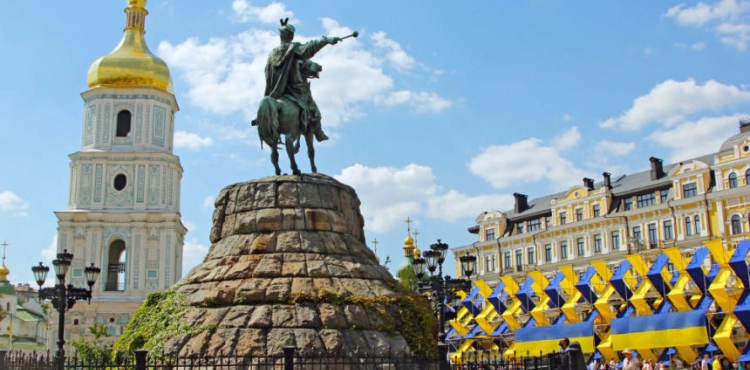It seems unlikely that Ukraine will be able to join the North Atlantic Treaty Organization (NATO) as long as it has a disputed territory. Russia is determined not to do so, as revealed by the recent confrontation of Ukrainian naval vessels off the disputed Crimean coast.
Russia´s annexation of the Crimea from neighboring Ukraine in 2014 and the pro-Russian insurgency in eastern Ukraine have led to a US-led military alliance vulnerable to direct conflict with Russia if Ukraine joins the 29-nation bloc.
"I do not see the possibility of (Ukraine) joining the alliance over the next decade," says Taras Zahorudny, director of the National Crisis Group, a think tank based in Kiev.
"It would be unrealistic, as the Crimea and Donbass are still under occupation," Zahorodny said, referring to Ukraine´s Donetsk Basin, where pro-Russian separatist groups have been battling the Ukrainian army for more than four years.
Russian President Vladimir Putin acknowledged that Russian forces were facilitating the annexation of the Crimea, but his government has strongly denied Ukraine´s claim of direct involvement in the conflict in Donbass.
"The Russian government will not change Putin´s basic national interest, which is that there will be no unfriendly political and military alliance on the territory of the former Soviet republics," says Nabi Abdullah-Yev, director of Russian affairs at Control Risks, a global consulting group. .
Three former Soviet republics bordering the Baltic Sea, Latvia, Lithuania and Estonia, had joined NATO during Putin´s first term. Ukraine and Georgia, a former Soviet republic, also had ambitions to catch up with the Western military alliance.
In parallel to the current conflict in the two easternmost regions of Ukraine bordering Russia, Georgia also lost control of two breakaway areas after a brief war with Russia in 2008.
"Russia has intervened in (Ukraine´s) affairs with the goal of preventing the formal integration of Ukraine into unfriendly alliances, such as the European Union and NATO," Abdullah-Yev told Deutsche Presse-Agentur dpa.
In mid-December, the United Nations renewed its condemnation of Russia´s annexation of the Crimea and expressed concern over the strengthening of the Russian military presence in the waters surrounding the region.
"Russia should withdraw its military forces from the Crimea and immediately end its temporary occupation of Ukrainian territory," the United Nations said in a statement when adopting a resolution backed by Ukraine to issue a condemnation.
In late November, Russian forces opened fire on three Ukrainian naval vessels before holding them and their crews, 24 in the Kerch Strait, a waterway off the Crimean coast, linking the Black Sea to the smaller Azov Sea.
The incident showed Russia´s willingness to use military force to assert its control of the Crimean peninsula, nearly five years after its annexation of the peninsula by a referendum that sparked widespread international controversy.
While Moscow has achieved its goal of preventing Ukraine from joining the North Atlantic Treaty Organization (NATO), "Russia is unlikely to seek further expansion of the conflict zone into Ukraine to control more land."
Marc Galliotti, a senior fellow at the Prague Institute of International Relations, echoed this assumption. "I do not see much likelihood of a dangerous escalation," he said.
"We may have facts like Kirch´s clash, and the skirmishes will continue along the demarcation line (in Donbass), but the Russians or the Ukrainians are unlikely to want to escalate at any serious level," Galioti said.
Ivan Korila, professor of international relations and history at the European University in St. Petersburg, said the conflict in Donbass could continue as long as Russia maintained its national stability.
"The conflict in Donbass" seems to have been planned, like in Transnistria or South Ossetia, in previous decades, "said Corella, referring to the breakaway regions of Moldova and Georgia, where the conflict is now frozen.












